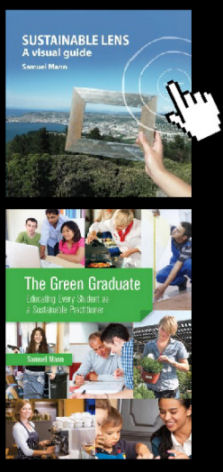The Egan Review was commissioned by the UK government in 2004. It aimed to undertake a skills review of the skills required to deliver sustainable communities.
Despite a wide ranging definition:
Sustainable communities meet the diverse needs of existing and future residents, their children and other users, contribute to a high quality of life and provide opportunity and choice. They achieve this in ways that make effective use of natural resources, enhance the environment, promote social cohesion and inclusion and strengthen economic prosperity.
their interpretation of “sustainable communities” is unfortunately narrow – they focus on the government workers and developers involved in the built environment. Nevertheless, the skills and systems they identify could have a wider application.
A sustainable community is described by seven components. Each of these “may be most relevant at different spatial levels”. Indicators developed from these components may be “We envisage the indicators being used as a means of demonstrating to the community what the problems are, what action will be taken to address them and how progress will be monitored. They should be used to motivate, to measure the impact of processes and actions”.

A major outcome is that they suggest using the sustainable communities definition quoted above to drive sustainable community strategy. This process of “pre-planning” sees community engagement to “create places where people want to live”.
The report identifies generic skills, behaviour and knowledge they believe will “make the difference between successful delivery and failure”.
Skills such as the ability to create a vision, leadership to achieve buy-in to the vision, communication, teamworking, project management, process re-engineering, understanding sustainable development, effective financial management, understanding the economics of development and the processes of local democracy.
These skills are in addition to the technical skills from the “core occupations” (primarily planning based). They also see a role for “associated occupations” – educators etc, and the “wider public”.
These are principally generic skills such as leadership,creating and getting buy-in to a vision, communication, engaging with and listening to customers, team working, project management, financial management etc, that can be found across a wide range of different occupations and industry sectors. We consider that these skills need to be underpinned by behaviours and attitudes that are critical to delivery of complex projects, such as a ‘can do’ approach, being open to change, challenging assumptions and creativity etc. To be effective in a sustainable communities context, the above skills and behaviours need to be supplemented by knowledge of key issues such as environmental best practice, what constitutes good design, crime, an understanding of local democracy, and of development finance
The authors argue strongly that it is these skills that are lacking, not the technical ones:
the generic skills, behaviours and knowledge need to sit alongside existing specialist or technical skills such as planning, architecture, design, and surveying. We have not undertaken an audit of professional training because we do not believe that this is where the fundamental difficulties lie.
…
currently planners are well equipped with discipline skills they need to undertake their work, but that it is the wider areas of key/transferable and professional/management skills where the needs and shortages occur, ie skills which can be acquired through initial education, but which also require experience
…at present we do not believe that there is a single occupation that provides training in all of the generic skills required, at every stage of development – and we consider that this shortfall must be addressed.
They see the professional/discipline based nature of teaching as part of the problem:
defining educational needs by the professions has delivered specialists who may have good technical skills but who have a less good understanding of generic skills and of what makes communities sustainable.
but they don’t see the generic skills as replacing technical skills:
there has to be a mechanism for introducing generic skills alongside the technical skills into the training of professionals and that specialist training has to be re-focussed on delivery of the final output – sustainable communities.
They consider how to teach these multidisciplinary skills – the main one being to step away from the “separation of professional training” (ie the disciplines). Perhaps because they don’t really have an answer for how to do this whilst maintaining the discipline based technical knowledge, their other suggestions are an introductory course and multidisciplinary project based learning. They then go on to suggest a national centre of excellence.
The report focusses on the planners (and related occupations). It seems a bit less certain on the associated occupations and the role of the wider public. Surely a wider adoption of the these generic skills would enable a truly engaged participative sustainable community. Well, not really, this somewhat limited suggestion seems out of place with the rest of the report – apparently even the best public will only need access and advice:
providing information to our third group – the wider public – who, whether acting as volunteers, residents or simply engaged citizens, may need access to information on sustainable community issues, and details of where to go to obtain further advice

Posted on April 23, 2009
0